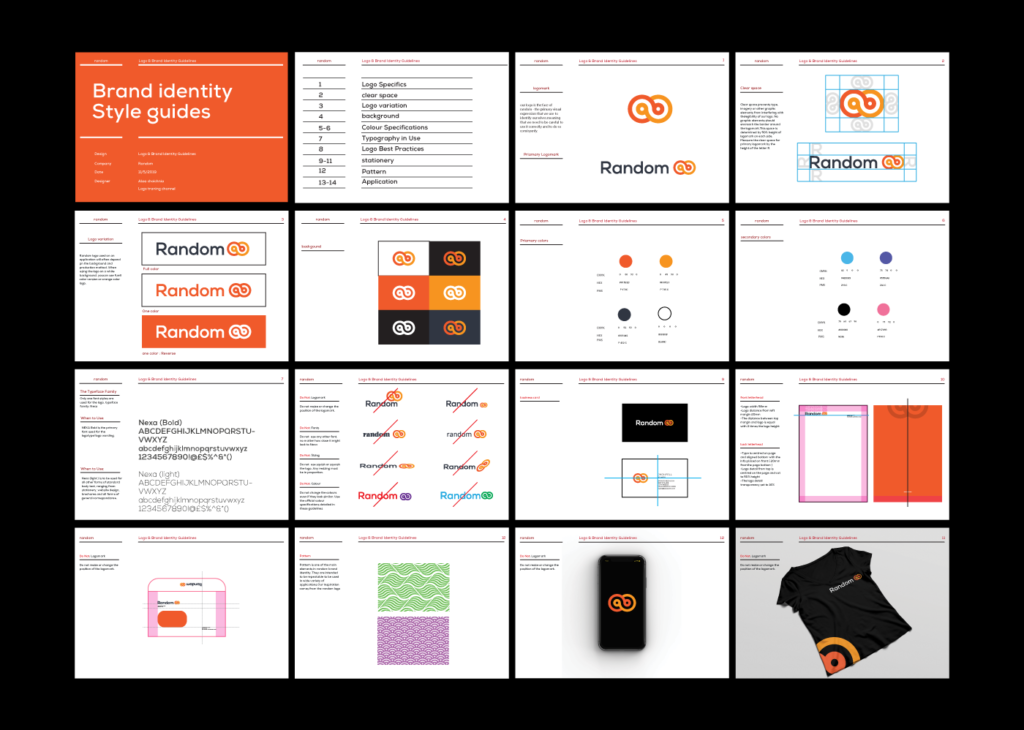The Importance of a Brand Book

In the competitive business landscape, establishing a strong brand identity is vital for success. A well-designed logo and a comprehensive brand book created by professionals are key elements in building a cohesive and impactful brand presence. This article explores the significance of a logo for a company and emphasizes the importance of entrusting the creation of a brand book to experts. Additionally, we provide some valuable tips on how to achieve the best results when working with an agency on developing a company’s brand book.
The Power of a Logo:
A logo serves as the visual representation of a company’s brand identity. It is the face of the business, making it crucial to have a professionally designed logo that conveys the right message to the target audience. A well-crafted logo creates instant recognition, builds trust, and distinguishes a company from its competitors. It becomes the cornerstone of the brand, appearing on various marketing materials, products, and digital platforms, thereby leaving a lasting impression on customers.
The Role of a Brand Book:
A brand book, sometimes referred to as a brand guidelines or style guide, is a comprehensive document that outlines the visual and verbal elements of a company’s brand identity. It provides a set of rules and guidelines for consistent and cohesive brand representation across all touchpoints. A professionally created brand book ensures that everyone involved in brand communication, both internally and externally, understands and maintains the brand’s visual and verbal integrity.
Importance of Professional Expertise:
Creating a brand book requires the expertise of professionals who understand the nuances of branding, design principles, and communication strategies. Collaborating with a specialized agency ensures that the brand book captures the essence of the company, aligns with its values, and resonates with the target audience. Professional designers possess the knowledge and skills to craft a visually appealing and meaningful brand book that effectively communicates the brand’s personality, positioning, color palette, typography, and usage guidelines.
Tips for Working with an Agency on Your Brand Book:
1. Define Your Brand Identity:
Before engaging with an agency, clearly articulate your company’s vision, mission, values, target audience, and desired brand personality. This foundation will guide the agency in creating a brand book that accurately represents your brand.
2. Collaborate Actively:
Actively participate in the branding process by providing feedback, sharing insights, and collaborating with the agency. Your inputs and perspectives are invaluable in shaping the brand book and ensuring it reflects your vision.
3. Communicate Brand Guidelines:
Clearly communicate your brand objectives, preferences, and any specific requirements to the agency. Discuss the desired tone of voice, color preferences, typography, and any existing brand assets that should be incorporated into the brand book.
4. Seek Consistency:
Consistency is key in branding. Ensure that the brand book covers all aspects of brand representation, including logo usage, color schemes, typography guidelines, imagery style, and tone of voice. This consistency will strengthen brand recognition and recall.
5. Plan for Scalability:
Consider the future growth and expansion of your company when developing the brand book. Discuss with the agency how the brand guidelines can be adaptable to accommodate new products, services, and marketing channels.
6. Educate Your Team:
Once the brand book is finalized, educate your team members and stakeholders about its importance and provide training if necessary. A well-informed team will ensure consistent brand representation across all channels and touchpoints.
Conclusion:
A logo and a professionally crafted brand book are essential for establishing a strong brand identity. Entrusting the creation of a brand book to experts ensures that your company’s visual and verbal elements are cohesive, consistent, and effectively communicate your brand’s essence. By collaborating actively with an agency and following the tips mentioned, you can achieve the best results in developing a comprehensive brand book that guides your




